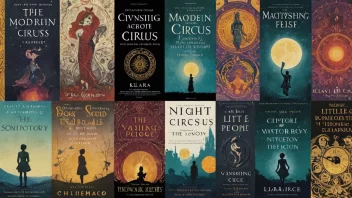Satire has long been a powerful tool in literature, serving not only as a means of entertainment but also as a critical lens through which we can examine societal norms, politics, and human behavior. In contemporary fiction, satire continues to thrive, often challenging readers to reflect on the absurdities of modern life. In this article, we will delve into five distinct ways that satire shapes contemporary fiction, highlighting its relevance and impact on both writers and readers alike.
1. Unmasking Societal Flaws
One of the primary roles of satire is to expose the flaws and follies inherent in society. Contemporary authors harness this tool to critique various aspects, including politics, consumer culture, and social media. By exaggerating certain traits or behaviors, satirical fiction forces readers to confront uncomfortable truths. For example, in works like White Noise by Don DeLillo, the absurdities of modern consumerism are laid bare, prompting readers to question their own values and behaviors.
2. Encouraging Critical Thinking
Satirical fiction often challenges readers to think critically about the world around them. Rather than simply accepting the status quo, these narratives invite readers to engage with complex themes and ideas. Authors like Kurt Vonnegut, whose works blend humor with poignant social commentary, encourage readers to analyze contemporary issues through a satirical lens. This approach not only entertains but also inspires a deeper understanding of societal dynamics.
3. Bridging Genres and Styles
Contemporary satire often defies traditional genre boundaries, blending elements of comedy, drama, and even science fiction. This genre-bending approach allows authors to explore diverse themes while keeping readers engaged. For instance, The Hitchhiker's Guide to the Galaxy by Douglas Adams melds science fiction with sharp satire, creating a narrative that is both thought-provoking and hilariously entertaining. By transcending genres, satire offers a unique reading experience that appeals to a wide audience.
4. Amplifying Marginalized Voices
Satire serves as a platform for marginalized voices, allowing authors from diverse backgrounds to comment on their experiences and the societal structures that impact them. Through satirical narratives, these writers can address issues such as racism, sexism, and inequality, often using humor to disarm readers and foster empathy. Works like The Sellout by Paul Beatty exemplify this trend, as they tackle complex social issues while maintaining a humorous tone that engages readers in meaningful dialogue.
5. Reflecting Cultural Shifts
As society evolves, so too does the role of satire in fiction. Contemporary satirical works often reflect cultural shifts, addressing the anxieties and absurdities of modern life. Authors respond to current events, technological advancements, and societal changes through their satirical narratives, creating a mirror that reflects the world we live in. For example, the rise of social media has spawned a new wave of satirical fiction that critiques the impact of online culture on human relationships and communication.
In conclusion, satire plays a vital role in contemporary fiction by unmasking societal flaws, encouraging critical thinking, bridging genres, amplifying marginalized voices, and reflecting cultural shifts. As readers, engaging with satirical narratives not only entertains but also enriches our understanding of the complexities of modern life. Through the lens of satire, we can explore and challenge the world around us, fostering a deeper appreciation for the power of literature.






